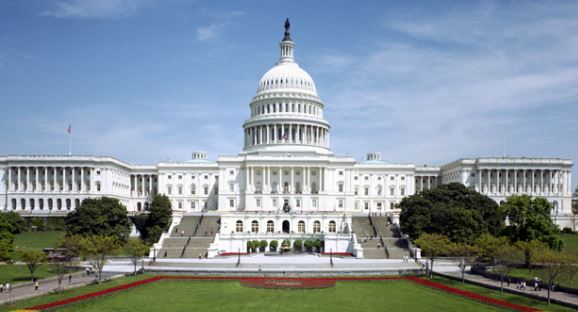Inside D.C.
‘Twas the week before Christmas…

As Congress scurries to finish up must-pass legislation before it adjourns for 2019 and heads home for the holidays, agriculture is piling up a heap of lawmaker gifts, from trade deals to federal tax extenders, ending on a high note a year that’s been less than stellar for farmers, ranchers and the industries which rely on them.
In what’s become its usual practice, Congress released a last-minute agreement on FY2020 funding just days before the current continuing resolution is expires on December 20. Congress will approve two spending packages – one carrying eight bills, the other four bills – with the House moving first and the Senate sending the bill to President Trump by the Friday deadline. Going into an election year, Trump may gripe, but he’ll sign the bills. There will be no repeat of the 2017 partial government shutdown.
The good news is the ag/FDA spending bill, at $23.4 billion, carries another $1.5 billion in disaster assistance for producers, including new eligibility for sugarbeet growers, bringing this year’s total appropriation to over $4.5 billion, with the list of eligible losses expanded to include quality losses as well as yield losses. The disaster money pot carries a provision protecting the tax-exempt status of electric co-ops if member/owners accept disaster checks, and increases rural broadband funding at USDA by $555 million.
A separate gift was handed farmers, renderers and biofuels producers, those folks who provide oilseeds and animal byproducts as feedstocks for biodiesel. A floor amendment reflects a last-minute agreement to extend through 2022 the $1/gallon biodiesel/renewable diesel blenders’ tax credit. That credit died in 2017, and is unlikely to get another lease on life after this Hail Mary action. The tax benefits will accrue retroactive to January 1, 2018. Also included are tax breaks for cellulosic biofuels and alternative fuel-related equipment purchases. A similar extension of federal tax niceties was granted to short line railroads.
House Speaker Nancy Pelosi (D, CA) and her House Democrats formally blessed a deal worked out with the White House to address the perceived weaknesses in the U.S.-Mexico-Canada Agreement (USMCA) regarding labor, environment, drug pricing and overall enforcement. The $1-trillion treaty should be ratified by the House this week, despite an 11th-hour glitch in treaty language regarding U.S. government “monitors” of Mexican labor reform.
The bill sent to Congress by the administration to implement the new agreement and repeal the old NAFTA treaty, carries new authority to put up to five new Department of Labor attaches in the Mexico City embassy, an move not shared with, but which enraged our neighbors to the South. That snafu was overcome, but not before Mexico’s senior trade negotiator hauled it back to Washington, DC, to get U.S. Special Trade Representative (USTR) Robert Lighthizer’s personal assurances – and a formal letter from the White House – that no U.S. embassy personnel in Mexico City will be inspecting Mexican factories, but will “abide by all relevant Mexican laws.”
President Trump made it a trade two-fer following his win on USMCA by announcing the U.S. and China have a deal on phase one of their tariff talks. While specifics continue to dribble out of USTR, China publicly confirmed this week it intends to buy at least $40 billion in U.S. ag goods over two years with a “goal” of reaching $50 billion, all purchases based on market conditions, price and global trade rules and no abandonment of other global suppliers. If China comes through, it means the world’s second largest economy will nearly double its ag imports from the U.S. from the previous high of $24 billion in 2017. Commodities on the Chinese shopping list include soybeans, pork, corn, wheat and rice; the U.S. will buy more dairy products and some fruits. Several non-tariff trade barriers will disappear or be significantly eased, including those on U.S. dairy, beef, poultry, animal feed, feed additives, pet food and ag biotech products.
On tariffs, Trump cancelled this month’s 15% tariff on $160 billion in unlevied Chinese exports, and 15% levies imposed in mid-September on a separate $120 billion in exports will drop to 7.5%. China will reduce its retaliatory tariffs in like fashion. This country’s original 25% tariffs remain on $250 billion in China trade as U.S. leverage going into phase two of the 18-month trade talks.

Add Comment